What is Ragtime: The music of Scott Joplin (sheet music)
Solace – Scott Joplin (sheet music)
Maple leaf Rag – Scott Joplin sheet music
Scott Joplin
(Texarcana, 1868 – New York, 1917) American pianist and composer. to formal perfection ragtime , pieces with a syncopated rhythm that were very popular in the first decades of the 20th century in the United States, in which a sense of rhythm close to that of jazz can be appreciated. His Maple leaf rag (1899) for piano met with immense success. The opera Treemonisha (1911), a mixture of black rhythms, ragtime and Italian opera, is his most ambitious work.
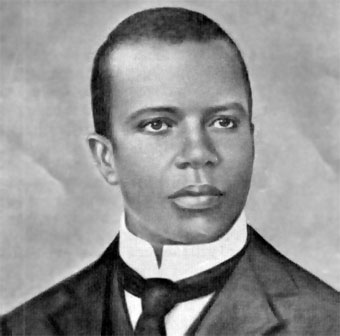
Scott Joplin
Scott Joplin received private piano lessons from a very young age. In the mid-1980s he undertook a long journey through the American Midwest, and in 1893 he performed at the Columbian Exposition in Chicago.
Joplin wanted to succeed as a pianist and as a classical composer; for this reason he settled in 1895 in Sedalia and studied music at the George R. Smith University for colored people. In 1900, he moved to St. Louis to work with music publisher John Stark.
In 1902, he published and choreographed his first ballet piece, in which numerous ragtime, and in 1903 he published his first opera, guest of A honor.
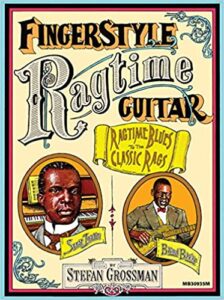
Then, in 1907, he moved to New York, and in the same year he wrote the instruction manual The School of Ragtime. Joplin developed and perfected ragtime with a series of compositions that have become classics of this genre, such as Maple leaf rag, Wall street rag and The entertainer , a theme on which composer Marvin Hamlisch would base himself for the unforgettable soundtrack of the film The Heist (1973), starring Paul Newman and Robert Redford. His contract with John Stark ended in 1909.
One of his most outstanding productions was Treemonisha , from 1911, a work that synthesizes all the ideas that the author had about music in a classical opera. Of this opera between acts, for which Joplin also wrote the libretto, only the edition for voice and piano survives, edited at the time by the same author, although the manuscript score for orchestra, which Scott Joplin finished, has not been found. but that was unpublished.
Treemonisha has been defined as “the first great American opera, since it speaks a genuinely American language with the conventional forms of Western opera, such as the overture, the aria, the graceful, the recitative, the choirs and the ballet” (WJ Schafer and J. Riedel). The work is of closed forms and is made up of twenty-seven numbers. Some precise choreographic indications, drawn up by Joplin, accompany some scenes; they are of particular interest for mounting numbers 4, 13 and 27.
The action takes place in 1884, when Treemonisha, the protagonist, is eighteen years old. The scene takes place on a plantation in Arkansas and in the thick jungle that surrounds it. The area is inhabited only by blacks, since their white masters have abandoned it after the defeat of the Confederates. Two tendencies confront the population: a fetishist, dominated by superstitions and linked to magical culture, ridiculed by Joplin, and another that trusts in the progress achieved through culture, personified by Treemonisha and her parents.
Treemonisha (whose name derives from the fusion of the words “tree”, tree, and Monisha, the name of the woman who wanted to have a child, found the girl under a tree, and raised her as her own) is the only literate person from the black community, for whom the civil war has brought freedom.

Educated by a white woman in exchange for her parents’ work, Treemonisha, once her training is over, finds, thanks to her education and culture, the necessary strength to overcome the superstitious and magical tendency present in the community.
Obviously, she goes through difficulties and dangers, which initiate her in the role of a guide capable of enlightening the black community. The plot core of the libretto is found in this contrast and in these difficulties, which give a special originality to the extraordinary balance that exists between the non-realistic character of the operatic form and the concrete character of its non-fantastic communication.
The choice of a woman who assumes the role of the protagonist possibly derives from the prevailing matriarchal character (more for socio-historical reasons than for residual Africanism) among the black populations of North America.
Joplin only occasionally uses in this work the rhythmic pattern of ragtime, which she seems to have used more extensively in an earlier opera, A Guest of Honor in 1903, now lost.
After Treemonisha , Scott Joplin composed and even recorded on piano rolls several ragtime pieces, so this opera certainly represents neither a criticism nor an abandonment of the music that was in fashion at the time, and that gave him a well-deserved fame.
Treemonisha is not an ambitious extension of the forms of that genre, but rather identifies itself completely with the operatic tradition, and sinks its roots and its reason for being in that life of the melodramas of the South of the United States that left so many traces in the music by some old jazz composers, and also by Louis Armstrong.
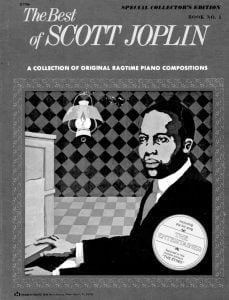
The Musical Elements Of Ragtime In The Music Of Scott Joplin
Introduction
With its origins dating back to the 19th century, the ragtime music genre is widely considered to be the forerunner of what jazz music would become today. This genre is easily recognized by its cheerful and bouncy style. Although today when the term “Ragtime” is mentioned, it usually refers to music exclusively for piano, in the golden years of this genre voice and other musical instruments were also included mainly, as well as its own dance style.
Defined by the Oxford dictionary in Spanish (sf), ragtime is the “style of black dance music born at the end of the 19th century and very popular at the beginning of the 20th, with a syncopated binary rhythm, and composed mainly for piano.”
To analyze the musical and artistic elements of this genre in particular, two pieces considered fundamental to the genre will be analyzed and compared, created by the author Scott Joplin, “[…] who composed works of considerable charm and ingenuity […]”.
The research question derives from the topic “The musical elements of Ragtime”, which is “What are the rhythmic and harmonic aspects of the pieces Maple Leaf Rag (1899) and The Entertainer (1902) by Scott Joplin for the development of the genre Ragtime?”.
The focus of this monograph will focus on the musical technical and theoretical analysis of the rhythmic and harmonic aspects of the previously mentioned pieces. The possible contextual elements that could have influenced the creation of these pieces will also be discussed, as well as their importance at the time they were published.
The justification for investigating this topic is of mere personal interest, since for a portion of my life I had listened to these rhythms on recordings without knowing which genre they particularly belonged to. It was until I was introduced to Ragtime as such in private piano lessons. Although at first it was complex for my ability to learn to play a style with ripped time, it soon became one of my favorite genres to play.
It is considered pertinent to carry out a study of the elements that characterize the previously mentioned genre, to analyze how a particular feeling and energy can be transmitted through the adequate use of musical theory, and how it can help in the expression of specific feelings in the form of music. of music.
The analysis of both musical pieces will be divided into two sections. The piece The Entertainer will be analyzed first, then Maple Leaf Rag, and once the most emblematic aspects of each piece have been extracted, these elements will be contrasted, in such a way that it is possible to observe which ones stand out the most so that a piece is considered of the genre.
These foundations will also be enriched with the social and historical context and what factors influenced the creation of said harmonies and rhythms, also including expert comments on the interpretation of said pieces, such as speed, accents, among others.
The scope of this monograph is limited to the availability of scores and the lack of recordings performed by the author himself, due to the archaic technology of the 19th century, in which musical production was just beginning to industrialize. Primary sources are Maple Leaf Rag and The Entertainer sheet music. Secondary sources are internet articles written by professionals.
The Entertainer
The structure of this piece constitutes an introduction to enter the work, and then a pattern is presented in the following sections: AA BB A CC DD. Each section fulfills the function of being repeated once, with the exception of section A, in such a way that in the second repetition a variation of the section is played that connects with the following one. So until you reach the last section D to finish the Rag.
Graphic of my authorship. Demonstration of the various sections in The Entertainer (Joplin, 1902).
Graphic of my authorship. Demonstration of the various sections in The Entertainer (Joplin, 1902).
Introduction: This prepares our ear to enter the piece. It is a small motif that is repeated twice, each time played an octave below the previous one, then a small chromatic variation descends in such a way as to leave room for an accented G major chord. An upbeat marks another chromaticism from D to D# for the anticipation of the next measure.
Section A: This section tells us the main theme of the piece. It has a simple pattern. The first motif, which spans bars 5-16, is repeated three times, followed by a second motif from bars 17-20, which functions as a turnaround would in blues music, to return to the first motif. This set of reasons are those that elaborate the main theme.
You can see that the structure of this piece is AA BB A CC DD. Each section ends after a repetition, in which, the second time it is played again, it concludes with a second box. This to vary what was proposed in each section during the first round, and apart from serving as a ‘transition’ for the next section.
This happens for most of the piece, except for one more repetition of section A, after section B, which has the function of accentuating the main theme of the song. Graphic by me. Demonstration of the various sections of the Maple Leaf Rag (Joplin 1899).
Section A: Theme of the piece. It is the most recognizable when listening to the song. Its purpose is to set a main mood for the listener. Maple Leaf Rag in this section has a fast melody, played at twice the speed of the left hand, playing one hand in sixteenth notes and the other in eighth notes.
Section B: Continued with fast melodies in sixteenth notes, the bass begins to progress with a syncopated rhythm. This section also bears resemblance to the typical bass of a military march.
Section C: As in section B, it continues with a syncopated bass, however, it also begins to walk more, as well as the typical bass of Jazz. The melody progresses in more complex variations than the previous section, since it does not stay within the range of an octave that it make arpeggios. This section is the most complex of the piece.
Section D: Similar to section A, the syncopated bass is no longer as marked as other sections and a motif begins to be created to conclude the piece, resolving various tension chords to give the feeling of returning home. On the second repeat, it ends with a grand chord on the tonic of the E flat major scale.
Rhythm and harmony
The compass that is carried is 2/4. This indicates that the numerator will divide the measure into two parts, and the denominator that it will be counted in quarter notes, of which 4 fill a full beat. So, they fit 2 quarter notes per bar in 2/4 time.
This time signature also indicates on which pulse the accents would be marked. In western music it is usually accentuated on the first beat of each measure, however, in syncopated rhythm, the beats corresponding to 2 and 4 are accented. In ragtime, as well as in various subgenres of Jazz, this characteristic is used, managing to create a distinctive rhythm. Bar 18 of Maple Leaf Rag.
The left hand is responsible for carrying and marking these accents, big jumps are made with the hand on the piano keyboard. Thanks to this, it was considered an innovation for his time, since Joplin invents playing bass and harmony with the same hand consecutively.
Harmony: (talk about chords, resolution of 7ths and change between 5ths. E flat major). As for the harmony of this piece, it is written in the key of E flat major.
Melody
Scales: (pentatonic, natural)
Melody patterns: (arpeggios within a single octave)
‘Although not the first rag to be written or published, Maple Leaf Rag became the first instrumental piece to sell more than a million copies.’ (Edwards, s.f.). One of Joplin’s early compositions was a resounding success, as he reached this number in less than a decade. With this, Joplin is recognized as ‘the king of Ragtime’, making it, in a short time, the musical genre par excellence in the United States.
Browse in the Library:
| Artist or Composer / Score name | Cover | List of Contents |
|---|---|---|
| All That Jazz piano-vocal Arrangement |
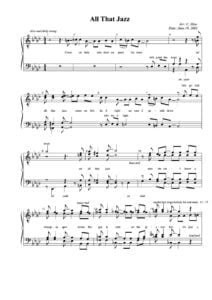 |
|
| All The Things You Are (Guitar And Tabs) | All The Things You Are (Guitar And Tabs) | |
| All The Things You Are (Guitar And Tabs) (Musescore File).mscz | ||
| All The Things You Are By Jerome Kern Guitar Transcription |
 |
|
| All The Things You Are Jerome Kern Oscar Hammerstein 2nd 1940 Jazz Standard (Vintage sheet music) |
 |
|
| All Time Standards (Songbook) Jazz Guitar Tablature Chord Melody Solos (Jeff Arnold) |
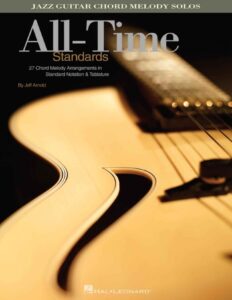 |
All Time Standards (Songbook) Jazz Guitar Tablature Chord Melody Solos (Jeff Arnold) |
| All Time Standards Piano (Arr. Gabriel Bock) |
 |
All Time Standards Piano (Arr. Gabriel Bock) |
| All You Need Is Ears George Martin with Jeremy Hornsby 1979 (Book) The story o the recording genius who created The Beatles |
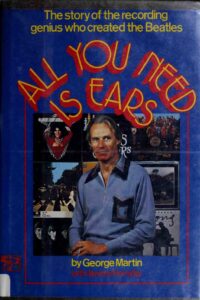 |
|
| Allan Holdsworth Just for the curious book Guitar with Tablature |
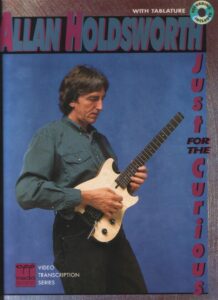 |
|
| Allan Holdsworth Melody Chords For Guitar |
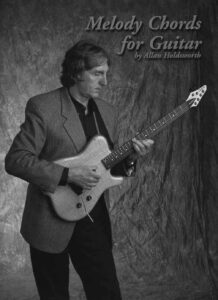 |
|
| Allan Holdsworth Super Guitarist with TABs |
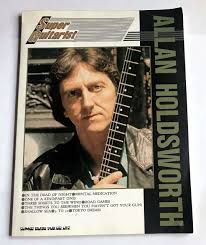 |
Allan Holdsworth Super Guitarist with TABs |
| Alle prese con una verde Milonga (Paolo Conte) | ||
| Allevi, Giovanni – Back To Life |
 |
|
| Allie Wrubel – Gone with the Wind |
 |
|
| Allman Brothers Guitar Songbook |
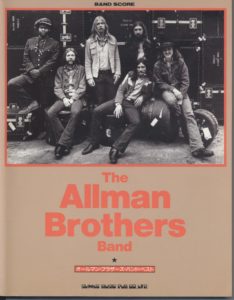 |
Allman Brothers Guitar Songbook |
| Allman Brothers, Best Of The (Piano, Vocal, Guitar) |
 |
Allman Brothers, Best Of The (Piano, Vocal, Guitar) |
| Allman Brothers, The – The Definitive Collection For Guitar Vol 1 with Tablature |
 |
Allman Brothers, The – The Definitive Collection For Guitar Vol 1 |
| Alma Redemptoris Mater |
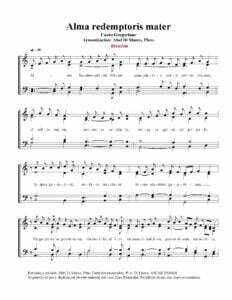 |
|
| Almeno tu nell’universo (Mia Martini) | ||
| Almir Chediak Ivan Lins Guitar Songbook Vol 2 |
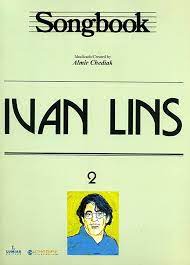 |
Ivan Lins Guitar Songbook Vol 1 by Almir Chediak |
| Alok – Hear Me Now Sheet Music |
 |
|
| Alone together (Howard Dietz & Arthur Schwartz) | Alone together (Howard Dietz Arthur SchwArtz) | |
| Alone Together (Musescore File).mscz | ||
| Alone Togheter Guitar Solo Transcription Jazz Standard |
 |
|
| Alphaville Forever Young (piano & Guitar) |
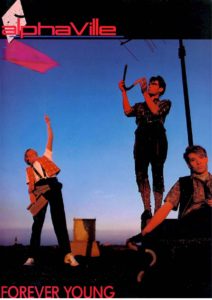 |
Alphaville Forever Young (piano & Guitar) |
| Also Sprach Zarathustra Op. 30 – Richard Strauss (Musescore File).mscz | ||
| Alternative Rock Sheet Music Collection |
 |
Alternative Rock Sheet Music Collection |
| Always on my mind – Elvis Presley – easy arrangement for piano, with fingering |
 |
|
| Amadeus – W.A. Mozart (film score arr. for piano solo by D. Fox) |
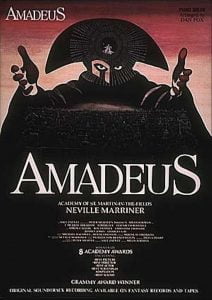 |
Amadeus – W.A.Mozart |
| Amadeus (original soundtrack piano solo arrangements) |
 |
Amadeus (Film score book) Piano Solos |
| Amalia Rodriguez FADOS Melodias De Sempre (GUITAR) |
 |
Amalia Rodriguez FADOS Melodias De Sempre (GUITAR) |
| Amando amando (Renato Zero) | ||
| Amar Pelos Dois (Salvador Sobral) | ||
| Amarcord (Nino Rota) | ||
| Amazing Grace – Tradicional (Piano ) |
 |
|
| Amazing Grace Traditional (Jazzy ver. sheet music) |
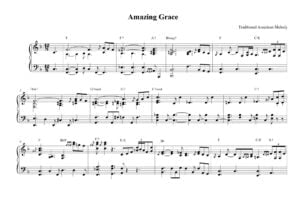 |
|
| Amazing Phrasing – Guitar 50 Ways to Improve Your Improvisational Skills (Guitar TABs Amazing Phrasing) (Tom Kolb) |
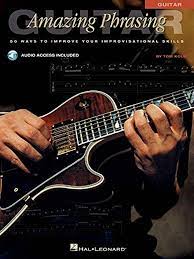 |
Amazing Phrasing – Guitar 50 Ways to Improve Your Improvisational Skills (Guitar TABs Amazing Phrasing) (Tom Kolb) |
| Amelie Poulain – 6 pieces for piano – Yann Tiersen – Yann Tiersen |
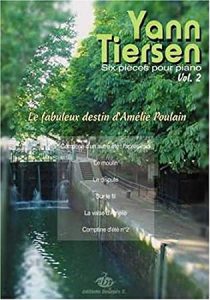 |
 |
| America (My Country ‘Tis of Thee Easy Piano Level 2 |
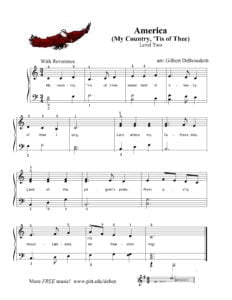 |
|
| America Greatest Hits Piano Vocal Guitar chords |
 |
America Greatest Hits Piano Vocal Guitar chords |
| America Greatest Hits (piano & Guitar) |
 |
America greatest |
| America Horse With No Name Piano vocal | America Horse With No Name Piano vocal | |
| America’s Songs The Stories Behind The Songs Of Broadway, Hollywood, And Tin Pan Alley (Philip Furia, Michael Lasser) Book |
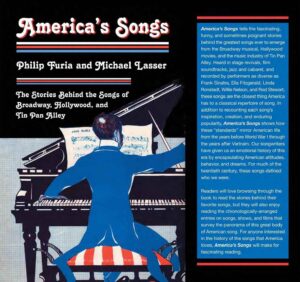 |
|
| American Folk Songs For Guitar with Tablature |
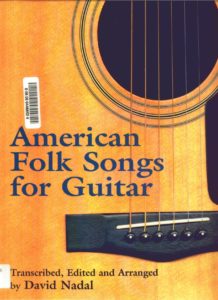 |
American Folk songs |
| American Folk Songs, My First Book of – Bergerac |
 |
|
| American Indian Melodies A. Farwell Op.11 (1901) |
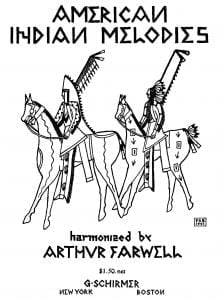 |
American Indian Melodies A. Farwell Op.11-min |
| American Pie (sheet music) |
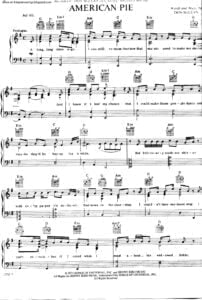 |
|
| American Popular Music (Book) by Larry Starr and Christopher Waterman |
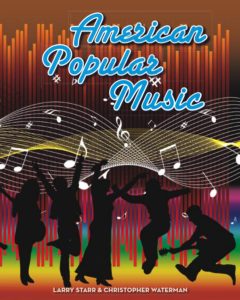 |
|
| Americana – Alegre, Magín (Guitarra) | Americana – Alegre, Magín (Guitarra) | |
| Amici Miei (Carlo Rustichelli) | ||
| Amor mio (Battisti) | ||
| Amore bello (Claudio Baglioni) | ||
| Amy Beach – Op.15 Four Sketches in Autumn |
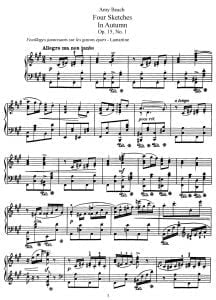 |
|
| Amy Grant – Breath Of Heaven | ||
| Amy MacDonald This Is The Life |
 |
AMY MACDONLAD |
| Amy Winehouse – Valerie |
 |
|
| Amy Winehouse – Valerie (sheet music) |
 |
|
| Amy Winehouse Amy Amy Amy |
 |
|
| Amy Winehouse Back To Black Songbook |
 |
Amy Winehouse Back To Black Songbook |
| Amy Winehouse Frank Songbook |
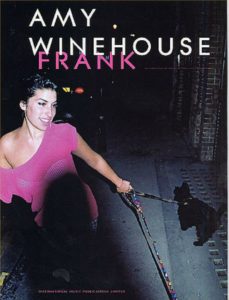 |
Amy Winehouse Frank |
| Amy Winehouse I Heard Love Is Blind |
 |
|
| Amy Winehouse Just Friends |
 |
|
| Amy Winehouse Rehab |
 |
|
| Amy Winehouse You Know Im No Good |
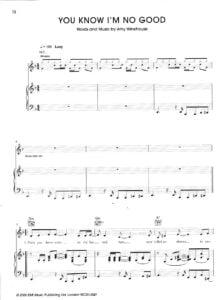 |
|
| An affair to remember (Harry Warren) | ||
| An American In Paris An George Gershwin (Concert Band)An American In Paris An George Gershwin (Concert Band) Arr. by Naohiro Iwai |
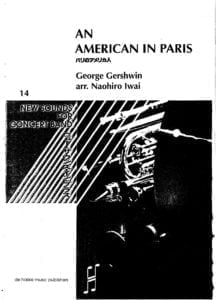 |
|
| An American Tail – The Marketplace – James Horner | ||
| An Introduction To Bach Studies (eBook) |
 |
|
| An Irish Blessing (Musescore File).mscz | ||
| An Irish Blessing (SATB) Choral | An Irish Blessing (SATB) | |
| Analisis musical claves para entender e interpretar la Música (M. y A. Lorenzo) Español |
 |
|
| Analysis Of Tonal Music An Schenkerian Approach Allen Cadwallader and David Gagné (Book) |
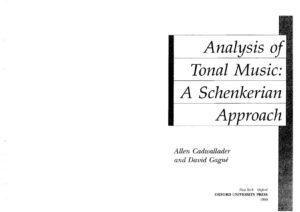 |
|
| Analyzing Bach Cantatas by Eric Chafe (eBook) |
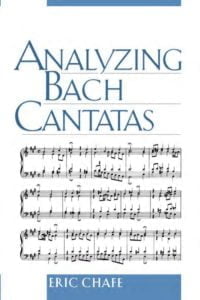 |
|
| Analyzing Schubert by Suzannah Clark (Cambridge Un. Press) (eBook) |
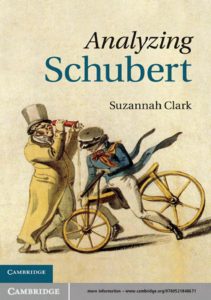 |
|
| Anastacia Not That Kind Songbook |
 |
Anastacia songbook |
| Anastasia Once Upon A December arr. by John Brimhall (Piano Solo 2 Versions Easy And Intermediate) |
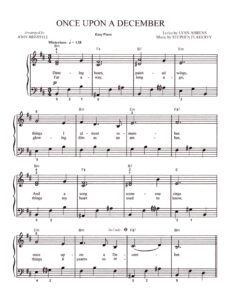 |
|
| Anastasia Sheet Music songbook Piano & vocal |
 |
Anastasia Sheet Music songbook Piano & vocal |
| Ancora ancora ancora (Mina) | ||
| Ancora qui (Django Unchained) Elisa – Ennio Morricone | ||
| And the Waltz goes on (Anthony Hopkins) | ||
| Andante (from String Quartet op. 22) P. I. Tchaikovsky | ||
| Anderson Freire – So Voce Piano |
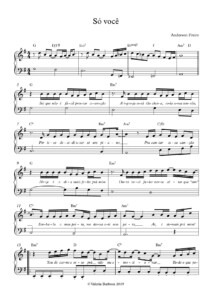 |
|
| Andras Schiff – Music Comes Out Of Silence Book |
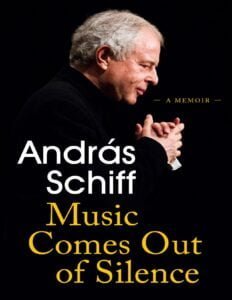 |
|
| Andre Gagnon – L’air Du Soir |
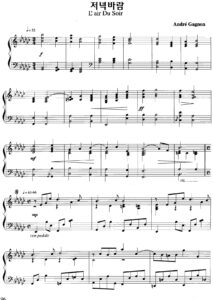 |
|
| Andre Gagnon – Le Reve De L’automne (sheet music Collection) |
 |
Andre Gagnon – Le Reve De L’automne (sheet music Collection) |
| Andre Gagnon – Les Jours Tranquilles | Andre Gagnon – Les Jours Tranquilles | |
| Andre Gagnon – Meguriai |
 |
|
| Andre Gagnon – Nelligan |
 |
|
| Andre Gagnon – Petite Nostalgie |
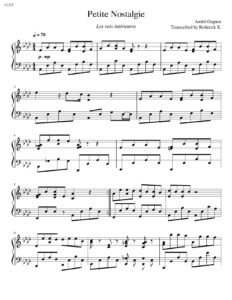 |
|
| Andre Gagnon – Reves D’Automne | Andre Gagnon – Reves D’Automne | |
| Andre Gagnon – The Very Best Of Andre Gagnon (Sheet Music Songbook) |
 |
Andre Gagnon – The Very Best Of Andre Gagnon (Sheet Music Songbook) |
| Andre Gagnon Ciel D’Hiver |
 |
|
| Andre Gagnon Entre Le Boeuf et l’Ane Gris Musique Traditionelle |
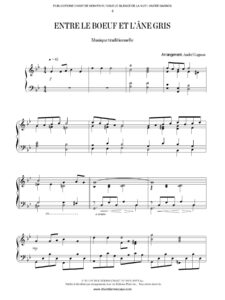 |
|
| André Gagnon L’air Du Soir |
 |
|
| Andre Gagnon Neiges |
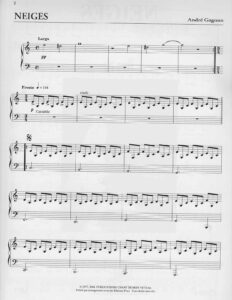 |
|
| André Gagnon Nelligan |
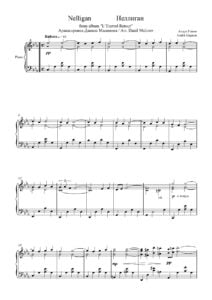 |
|
| André Gagnon Origami |
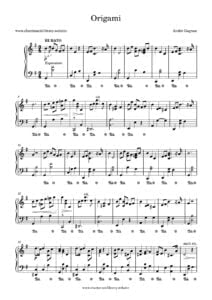 |
|
| André Gagnon Pensées Fugitives |
 |
|
| Andre Gagnon Pensées Fugitives |
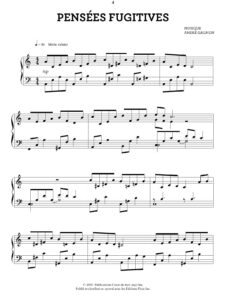 |
|
| André Gagnon Piano Solitude |
 |
Gagnon, André Piano Solitude |
| Andre Gagnon Prologue |
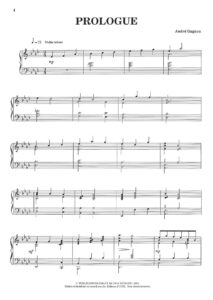 |
|
| André Gagnon Selection Speciale de chansons (partitions musicales) |
 |
André Gagnon Selection Speciale de chansons (partitions musicales) |
| André Gagnon Un Piano Sur La Mer (Piano Solo Partition Sheet Music) | Gagnon André Un Piano Sur La Mer (Piano Solo Partition Sheet Music) | |
| Andre Popp Paul Mauriat Love Is Blue Piano Solo Arr. |
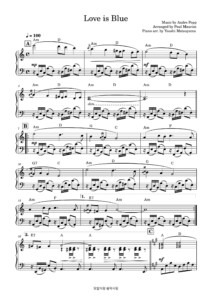 |
|
| André Previn – Play Like André Previn no. 1 |
 |
Andre Previn sheet music |
| Andre Previn – The Genius of (Piano Solos sheet music) |
 |
The genius of André Previn |
| Andre Rieu La Vie Est Belle (Songbook Collection As Performed By André Rieu) |
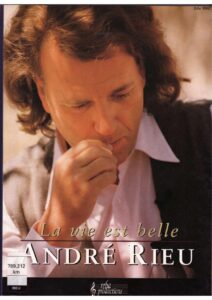 |
Andre Rieu La Vie Est Belle (Songbook Collection As Performed By André Rieu) |
| Andrea Bocceli – Time To Say Goodbye | ||
| Andrea Boccelli – Time To Say Goodbye |
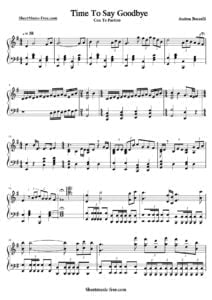 |
|
| Andrea Bocelli Romanza songbook (Guitar & Voice) |
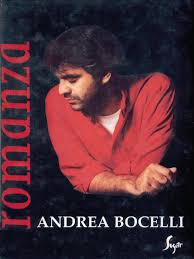 |
Andrea Bocelli Romanza songbook |
| Andrea Bocelli – Anthology (songbook) |
 |
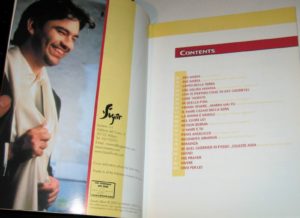 |
| Andrea Bocelli – Con te partiro (Time to say Goodbye) Piano Solo arr | Andrea Bocelli – Con te partiro (Time to say Goodbye) Piano Solo | |
| Andrea Bocelli – Con te partiro (Time to say Goodbye) Piano Solo.mscz | ||
| Andrea Bocelli – The Best Of Songbook |
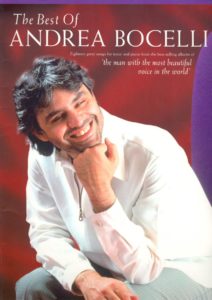 |
Andrea Bocelli best of |
| Andrea Bocelli Celine Dion The Prayer Easy Piano And Vocal By David Foster, Carole Bayer Sager, Alberto Testa And Tony Renis |
 |
|
| Andrea Bocelli Celine Dion – The Prayer – Easy Piano and Vocal by David Foster, Carole Bayer Sager, Alberto Testa and Tony Renis.mscz | ||
| Andrea Bocelli Cieli Di Toscana (Piano, guitar & Vocal) |
 |
Andrea Bocelli Cieli Di Toscana |
| Andrea Bocelli Sogno Songbook |
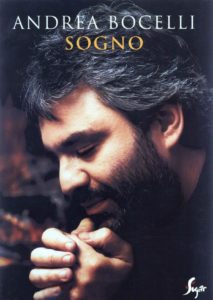 |
Andrea Bocelli sogno |
| Andrea Bocelli The Prayer |
 |
|
| Andrea Morricone – Nuovo Cinema Paradiso – Love Theme |
|
